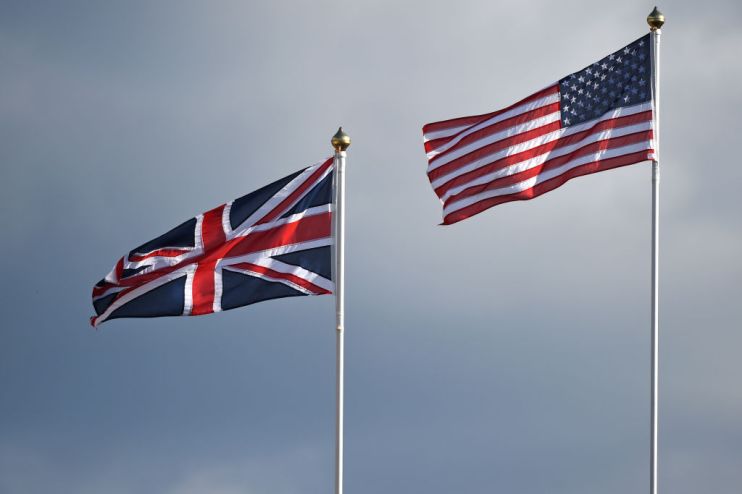Fresh calls for guarantees on digital taxation in future UK-US trade deal

One of America’s largest internet advocacy groups has published a six-point wish list for a future UK-US trade deal, including calls for no unilateral digital taxes.
The Internet Association’s new white paper calls for a future trade deal to include provisions to ensure the free flow of information between the two countries, a guarantee to not unilaterally impose taxes on digital services companies and a guarantee that “measures do not undermine the intermediary liability protections”.
The new paper suggests that any potential new taxation on digital services should be set up in “an internationally coordinated manner”.
The Internet Association, which was set up by companies such as Facebook and Amazon, said in its white paper that the UK now exports $34.8bn (£27.8bn) to the U.S., an increase of 56 percent from 2006 to 2017.
Meanwhile, $48.8bn (£39bn) is exported from the US to the UK.
Before the Open newsletter: Start your day with the City View podcast and key market data
Internet Association director of trade policy Jordan Haas said: “The US and the UK lead the world in digital technology and this agreement should include policies that will bolster that success.
“The provisions in our white paper would strengthen both countries’ digital trade leadership – at a time when other nations are pushing very different, closed visions of the internet.”
It comes after trade secretary Liz Truss said yesterday that there was “no set deadline” for a trade deal to be wrapped up between the UK and US.
In a statement, Truss said the government had made it clear that there is no set deadline for a transatlantic agreement, and that “quality is more important than speed” in securing a deal.
The UK has now completed its second round of trade negotiations with the US, with the next session due to take place at the end of July.
The trade secretary said talks “continued to be positive and constructive,” but warned that any trade deal must be “fair, reciprocal and ultimately in the best interests of the British people and the economy”.